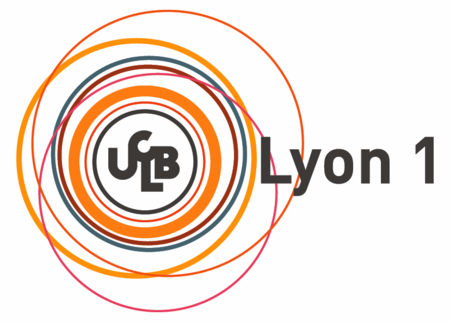UCBL - Chemistry

The University Claude Bernard Lyon 1 (UCBL) is the fifth largest French university, and the 1st one in the field of health, taking into account the number of students. The UCBL student population is nearly 40 000, and it employs 2900 teachers/researchers and teachers, of which 700 are also hospital practitioners, as well as 1800 technical and administrative staff. The University has 73 state-funded research units working in three fields; health, the environment and material technologies. It is a multidisciplinary university specializing in both fundamental and applied research and as such it can boast more than 4415 internationally published articles and 44 patents per year.
Two Research Units of the University are involved in the present project:
- Chemistry Laboratory
- CREATIS
The Chemistry Laboratory (UMR 5182) develops interdisciplinary research projects at the frontiers with biology, material sciences and physics. The group “Functional Materials and Photonics” aims to bring together multidisciplinary expertise involving Molecular Chemistry, Materials Science and Photonics to develop innovative systems based on multifunctional materials. The expertise lie from molecular modeling to organic and organometallic synthesis, material and nanomaterial science (soft chemistry routes, colloidal chemistry) and spectroscopy (two-photon processes, luminescence, non-linear absorption, excited state absorption…). In related topics, the group is involved in several regional (Region Rhône-Alpes), national (ANR, CNRS) or European research projects (EU FP7, Swedish Defence Research Agency). The group has published over 170 papers since 2000 in the field and holds more than 12 patents
The team functional materials and photonics within the Chemistry Laboratory, has great skills in the field of nanomaterials design, preparation and studies, with control on the compositions (metal oxides, metal fluorides, metals), shape and size. For biological purposes the design of multifunctionnal nano-objects includes synthesis of inorganic core (gold, GdF3, YbF3…) and functionalization with highly stable organic agents to ensure biocompatibility, targeting, optical properties. Characterization of these systems is ensured by consequent equipment available in the ENS laboratory, such as dynamic light scattering (DLS) combined with zeta potential measurements, UV-vis-NIR and Infra-red spectroscopy, EPR, liquid and solid state NMR, Relaxometer, SEM and more recently the lab received a grant for the purchase of an advanced XRD equipment. All these equipments fit perfectly with the needs of the team for the complete characterization of the nanoprobes before use for in vitro or in vivo evaluations.
Frederic Lerouge is the SCNAnTREAT coordinator. His main research areas relate to the design and preparation of hybrid nanoparticles for diagnostic and therapy (Lanthanide Fluoride nanoparticles, Gold nanoparticles, Surface functionalization). He co-authored more than 50 papers in the field of hybrid materials and participated to more than 15 international conferences as invited speaker. He is in charge of the “Functional materials and photonics” team and involved (as PI or partner) in several projects funded by the EU, French Research National Agency or local institutions such as Labex.


